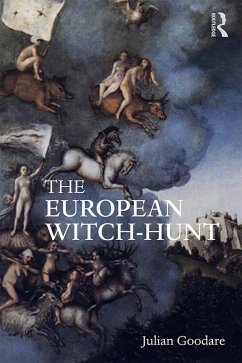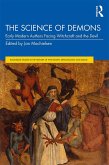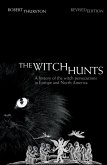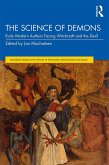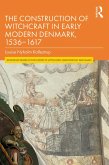Dieser Download kann aus rechtlichen Gründen nur mit Rechnungsadresse in A, B, BG, CY, CZ, D, DK, EW, E, FIN, F, GR, HR, H, IRL, I, LT, L, LR, M, NL, PL, P, R, S, SLO, SK ausgeliefert werden.
Ronald E. Hutton, University of Bristol, UK
"This book excellently presents the different layers of meaning of witchcraft and witch trials all over Europe. Julian Goodare combines a sublime understanding of the topic with a personal interpretation in writing about one of the greatest enigmas in history: What was a witch and why were witches persecuted by their neighbors as well as by the state? The book provides a most fruitful resource for students and scholars in presenting new research and new perspectives on the history of witchcraft."
Rita Voltmer, University of Trier, Germany
"Julian Goodare's The European Witch-Hunt is a valuable addition to the study of early modern witchcraft and witch-hunting. Goodare devotes extra attention to explaining the mentalities, both illiterate and erudite, that converged to create the stereotype of the witch. His explanations of recurrent themes in ideas about witchcraft will be particularly helpful to students and prepares them for a better understanding of primary texts and more specialized secondary studies."
Walter Stephens, John Hopkins University, USA
"In this illuminating book, Goodare (Univ. of Edinburgh, Scotland) explores the subjects of witches and witch-hunts in early modern Europe, 1400-1750, maintaining that these years rather than the Middle Ages were the "witch years." He makes it clear that "although everyone feared witches, they did not all fear them in the same way" and offers readers a linked, fourfold concept of witchcraft to support this view ... An excellent bibliography, a map, charts, and a helpful appendix accompany the book, which complements studies by Brian Levack, The Witch-Hunt in Early Modern Europe (CH, Sep'87; 4th ed. 2016); Robin Briggs, Witches & Neighbors (1996); and Lyndal Roper, Witch Craze (CH, Nov'05, 43-1819)."
L. B. Gimelli, Eastern Michigan University

